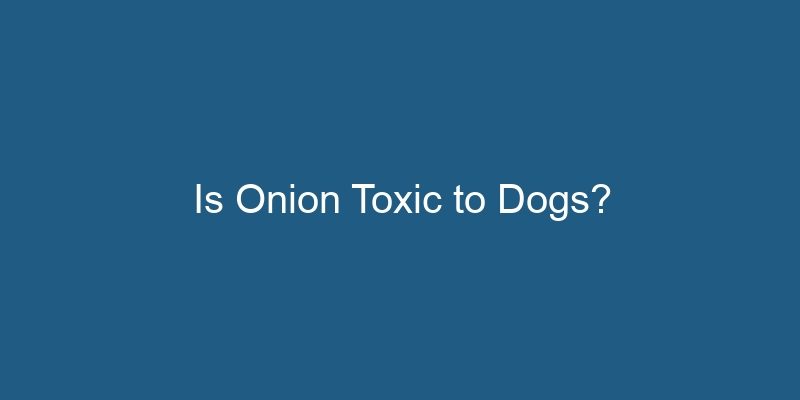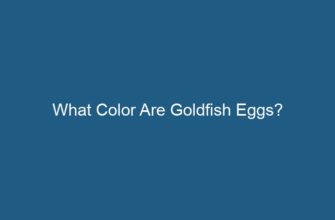When it comes to the safety of our furry friends, it is crucial to be aware of the foods they should avoid. One such food that often raises concerns is onion. While onions are a common ingredient in many human dishes, they can be toxic to dogs. In this article, we will explore the potential dangers of onions for dogs, the symptoms of onion toxicity, and what to do if your dog ingests onions.
- 1. Understanding Onion Toxicity
- 1.1. How Does Onion Toxicity Occur?
- 1.2. What Amount of Onion is Toxic to Dogs?
- 2. Symptoms of Onion Toxicity in Dogs
- 2.1. Gastrointestinal Distress
- 2.2. Hemolytic Anemia
- 3. What to Do if Your Dog Ingests Onions
- 3.1. Contact Your Veterinarian
- 3.2. Induce Vomiting (if instructed)
- 3.3. Follow Veterinary Recommendations
- 4. Onion Alternatives for Flavorful Dog Meals
- 4.1. Parsley
- 4.2. Turmeric
- 4.3. Carrots
- 5. Frequently Asked Questions about Onion Toxicity in Dogs
- 5.1. Can cooked onions be given to dogs?
- 5.2. Are all breeds of dogs equally sensitive to onions?
- 5.3. Can onion powder or onion-flavored products harm dogs?
- 5.4. Can a small amount of onion cause long-term damage?
- 5.5. Can onion toxicity be treated at home?
- 5.6. Are there any other foods I should be cautious about?
- 6. Conclusion
1. Understanding Onion Toxicity
Onion toxicity in dogs is primarily caused by the presence of a compound called N-propyl disulfide, which can damage a dog’s red blood cells. This compound is not present in all plants, but it is found in high concentrations in onions and related vegetables like garlic and shallots.
1.1. How Does Onion Toxicity Occur?
When a dog consumes onions, the N-propyl disulfide in the vegetable is absorbed into their bloodstream. Once in the bloodstream, it can cause oxidative damage to the red blood cells, leading to a condition called hemolytic anemia. This condition can be life-threatening for dogs, especially if not addressed promptly.
1.2. What Amount of Onion is Toxic to Dogs?
The toxic dose of onion varies depending on the size and weight of the dog. As a general guideline, it is recommended to avoid feeding any amount of onion to your dog. However, it is important to note that small amounts of onion, such as those found in some commercial pet foods, are unlikely to cause immediate harm. Nevertheless, it is always best to consult with your veterinarian regarding your dog’s specific dietary needs.
2. Symptoms of Onion Toxicity in Dogs
Recognizing the symptoms of onion toxicity is crucial in providing timely veterinary care. Here are some common signs to look out for:
2.1. Gastrointestinal Distress
Consuming onions can cause gastrointestinal upset in dogs. Symptoms may include vomiting, diarrhea, loss of appetite, and abdominal pain. These signs typically occur within a few hours of ingestion.
2.2. Hemolytic Anemia
The most severe consequence of onion toxicity is the development of hemolytic anemia. This condition is characterized by the destruction of red blood cells, leading to symptoms such as pale gums, weakness, lethargy, rapid breathing, and increased heart rate. If left untreated, it can be fatal.
3. What to Do if Your Dog Ingests Onions
If you suspect that your dog has ingested onions or any onion-containing products, it is essential to take immediate action. Here’s what you should do:
3.1. Contact Your Veterinarian
Reach out to your veterinarian or a pet poison helpline immediately. Provide them with details about the amount of onion ingested, the time of ingestion, and your dog’s current symptoms. They will guide you on the necessary steps to take.
3.2. Induce Vomiting (if instructed)
In some cases, your veterinarian may recommend inducing vomiting to prevent further absorption of the toxic compounds. However, induction of vomiting should only be done under professional guidance.
3.3. Follow Veterinary Recommendations
Your veterinarian may suggest bringing your dog in for an examination or advise specific treatments based on the severity of the onion toxicity. It is crucial to follow their recommendations to ensure your dog’s well-being.
4. Onion Alternatives for Flavorful Dog Meals
While onions are off-limits for dogs, there are various alternative ingredients you can use to enhance the flavor of their meals. Here are a few safe options:
4.1. Parsley
Parsley is a dog-friendly herb that can add a fresh taste to your dog’s meals. It is safe in moderate amounts and can help combat bad breath.
4.2. Turmeric
Turmeric is a spice known for its anti-inflammatory properties. It can be a safe and flavorful addition to your dog’s diet when used in moderation.
4.3. Carrots
Carrots are a crunchy and nutritious vegetable that dogs often enjoy. They can be served raw or cooked, providing a healthy alternative to onions.
5. Frequently Asked Questions about Onion Toxicity in Dogs
5.1. Can cooked onions be given to dogs?
No, cooked onions are also toxic to dogs. The toxic compounds in onions are not destroyed by cooking, so it is best to avoid feeding any form of onion to your furry friend.
5.2. Are all breeds of dogs equally sensitive to onions?
While all dogs should avoid onions, some breeds may be more sensitive to the toxic effects than others. Breeds such as Akitas and Shiba Inus have been reported to have a higher risk of developing onion toxicity.
5.3. Can onion powder or onion-flavored products harm dogs?
Yes, onion powder and onion-flavored products can also be toxic to dogs. These products often contain concentrated amounts of the toxic compounds found in onions, posing a risk to your pet’s health.
5.4. Can a small amount of onion cause long-term damage?
While a small amount of onion may not immediately cause severe harm, repeated exposure or ingestion of even small amounts can lead to cumulative damage over time. It is best to avoid onion altogether to prevent any potential long-term health complications.
5.5. Can onion toxicity be treated at home?
No, onion toxicity should not be treated at home. It is a serious condition that requires prompt veterinary care. Delaying treatment can have life-threatening consequences for your dog.
5.6. Are there any other foods I should be cautious about?
Yes, besides onions, other foods that can be toxic to dogs include chocolate, grapes, raisins, avocados, and certain nuts. It is important to familiarize yourself with these foods and keep them out of your dog’s reach.
6. Conclusion
In conclusion, onions are toxic to dogs due to the presence of N-propyl disulfide, which can cause hemolytic anemia. It is crucial to avoid feeding onions or any onion-containing products to your furry friend. If you suspect onion ingestion, contact your veterinarian immediately for guidance and follow their recommendations for proper care. Remember, prevention is always better than cure, so be cautious about the foods you offer your dog, ensuring their safety and well-being.










